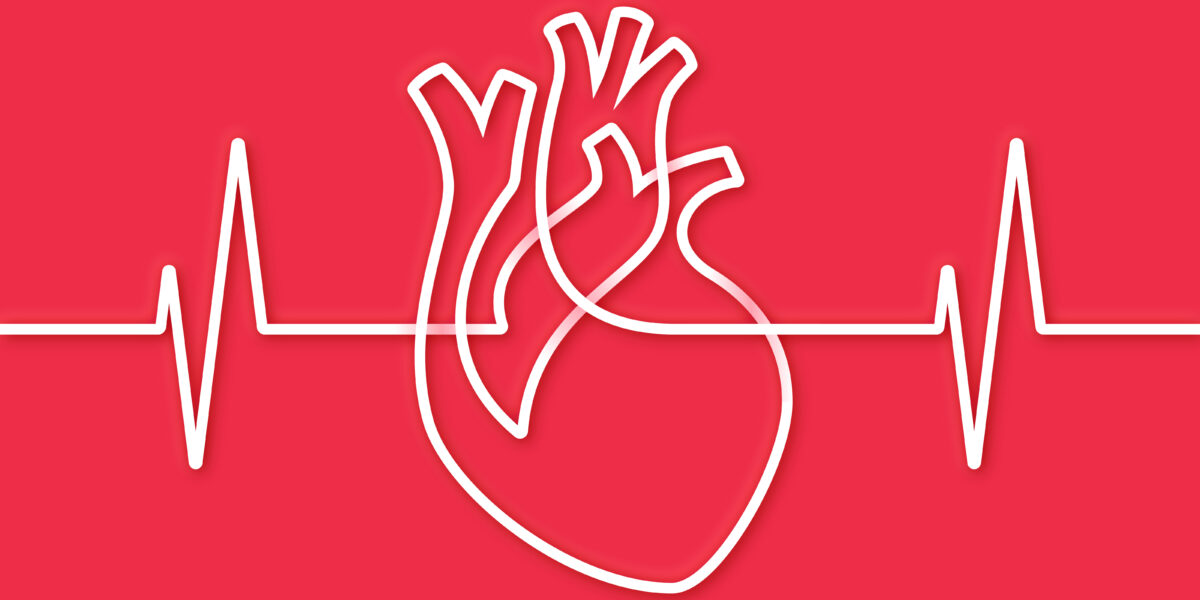Login
Electrophysiology
Abnormal Heart Rhythm
Arrythmia causes and treatments, including surgery and pacemakers
Why Arrythmia Happens and How We Treat It
The heart is like a well-oiled machine. When it’s working well, parts move the right amount, at the right time, in perfect sync with one another. But when the heart beats too fast, too slow or irregularly, it can throw other parts and systems of the body out of alignment. This is called an arrythmia, and it’s caused by changes in the electrical signals that flow through the heart. Sometimes you feel it; other times you don’t.
Though it may not always be cause for alarm, an arrythmia should always be taken seriously. Without treatment, an arrythmia can lead to severe complications, such as a weakened heart, cardiac arrest and stroke.
Frequently Asked Questions
The causes of an irregular heartbeat vary. It’s often be a combination of factors, from medical conditions to medications to certain lifestyle factors.
High blood pressure
When too much force is required to move blood throughout the body.
Coronary heart disease
When cholesterol and other deposits block coronary arteries, limiting blood flow and the critical oxygen and nutrients that blood carries.
Heart conditions or injuries
Heart failure, structural abnormalities, post-surgery healing and physical changes from illness or injury can all result in arrhythmia.
Medications
Certain substances can cause your heart rate to increase, causing arrythmia:
- Caffeine.
- Nicotine.
- Decongestants.
- Amphetamines (drugs that stimulate the brain).
- Asthma medications.
- Recreational drugs like cocaine.
- Beta-blockers (drugs that treat high blood pressure).
- Calcium channel blockers.
- Certain antiarrhythmic medications, which can make arrythmias worse.
Anxiety or emotional distress
Accelerated heart rate from anxiety or distress will eventually slow, but if it doesn’t, or if it causes severe symptoms, you should contact your healthcare provider.
Illness or fever
Accelerated heart rate often accompanies illness or fever but improves once you’re better. If it doesn’t, you should contact your healthcare provider.
Lifestyle factors
Certain behaviors and lifestyle factors can directly contribute to arrythmia, as well as increase overall risk:
- Diabetes.
- Smoking.
- Excess alcohol use.
- Stress.
- Being overweight.
- Physical inactivity.
- Poor diet.
- Drug misuse.
- Personal or family history of heart conditions.
Other causes
- Pain.
- Electrolyte imbalances.
- Sleep apnea.
- Blood clots.
- Anemia.
- Hypothyroidism.
Arrythmia is not uncommon. But in certain cases, it is quite serious. If you’re concerned, it’s best to be on the safe side and contact a physician. And if you’re unsure whether you’re experiencing arrythmia or something else, we can help with that too.
Unusual or sudden symptoms. If you’ve noticed an irregular heartbeat before, you should notify your doctor. And if you’re noticing it along with other symptoms, like chest pain or loss of consciousness, get help right away.
You should also reach out if you begin noticing persistent arrythmia.
History of heart issues. If you notice an irregular heartbeat and you have a history of heart attack, high blood pressure or heart abnormalities, it’s time to talk to your provider.
Family history. If you have a family history of heart disease, any heartbeat irregularities should be taken seriously.
If you have trouble breathing or experience chest pain, dizziness or fainting episodes, seek emergency care immediately!
ChristianaCare experts can tell you whether you are, in fact, experiencing an arrythmia. We then use everything from basic physical exams to the latest diagnostic tools to determine the severity, assess potential causes and formulate a custom treatment plan.
Commonly used diagnostics include electrocardiogram (EKG), echocardiogram, rhythm monitoring and stress testing.
Once we’ve confirmed you have an arrythmia that requires treatment, we’ll recommend the best option. Treatment plans can vary. Some are quite simple, but others are more complex, depending on your situation and severity of symptoms. Most treatment plans include:
Lifestyle changes
- Weight management.
- Avoiding stimulants like caffeine.
- Reducing alcohol consumption.
- Reducing or eliminating tobacco use.
- Managing blood pressure and blood sugar.
Medications
- Antiarrhythmics.
- Anticoagulants.
- Any drugs that may be causing arrythmia while treating related conditions.
Therapies (less invasive than traditional surgery)
- Cardioversion uses electrical impulses to restore normal rhythm.
- Catheter ablation uses radiofrequency energy to create scars to break up electrical signals that cause the irregular heartbeat.
- Pulmonary vein isolation creates scar tissue in the pulmonary veins to block the electrical impulses that cause A-fib.
Implantable devices
For cases of A-fib that haven’t responded well to other treatments, our electrophysiologists may recommend a surgical procedure to implant one of several types of electronic devices. These are commonly known as pacemakers. Each uses a different approach to controlling and treating A-fib and its symptoms.
Generally, pacemakers work by regulating or correcting faulty electrical signaling in the areas of the heart that regulate your heartbeat. The pacemaker can help your heart beat at a normal rate or rhythm, or both. Beyond that, there are a few types that doctors may recommend for your specific case.
- Permanent pacemaker: Uses tiny electrical impulses to keep your heart beating fast and consistent enough.
- Implantable cardioverter defibrillator (ICD): Rather than constantly maintaining your heartbeat, this device monitors rhythm and only delivers electrical impulses when it detects an abnormality.
- Biventricular pacemakers and defibrillators: Also known as cardiac resynchronization therapy (CRT). These devices synchronize the contraction of your left ventricle. They’re specifically used for patients with heart failure and/or an uncoordinated left ventricle.
While traditional pacemakers send impulses to the heart via tiny wires, modern versions use no wires at all. These are also known as leadless pacemakers, which are smaller (about the size of a pill) and used whenever appropriate.
Some pacemakers are only used temporarily, after a heart attack or surgery, for example. They may also be used when medication is needed to slow down the heartbeat, to prevent the heart rate from being too slow.
Who needs a pacemaker?
Not everyone with A-fib needs a pacemaker. But sometimes it’s the only, or most effective, course of action. Your cardiologist will evaluate your situation and decide what’s right for you. A pacemaker may be recommended when:
- Your heartbeat is too slow.
- Your heartbeat pauses.
- Your heartbeat is irregular or too fast, thus requiring high doses of medications.
- You’ve experienced heart failure (some types).
Many factors can cause these symptoms, including age-related changes, prior damage to the heart, congenital heart conditions and medications that affect the heart rate, as well as certain cardiac, endocrine and autoimmune disorders.
Symptoms that may warrant a pacemaker include:
- Fatigue.
- Dizziness or lightheadedness.
- Heart palpitations.
- Chest pain or tightness.
- Shortness of breath.
- Fainting.
Depending on the combination of therapies used, recovery can take days, weeks or months. Your provider will give you a thorough explanation of what to expect once a treatment plan is created.
Preventing arrhythmia
While treatment can correct any damage or irregularities, lifestyle choices are key for preventing arrythmia from returning—this way, you also reduce your chances of needing treatment again. These choices are generally straightforward and related to general health and wellness.
- Eat a balanced, healthy diet.
- Stay physically active.
- Get an adequate amount of sleep.
- If you smoke, quit.
- Reduce or eliminate alcohol use.
After treatment, you’ll need to make regular follow-up visits. These are to ensure that treatments and any implanted devices are working, medications are dosed correctly and working properly, and you’re otherwise in good health.
Our Providers
Related Content
Contact Us
Christiana Hospital
4755 Ogletown-Stanton Road
Newark, DE 19718



